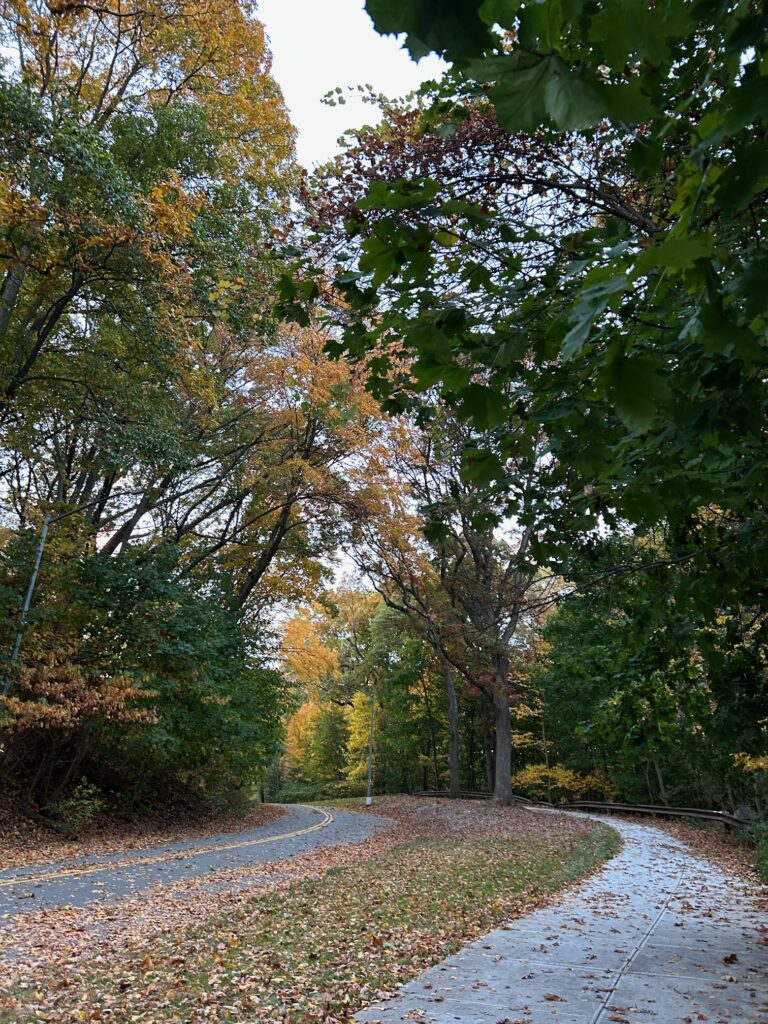
In a recent newsletter, I wrote about (what I see as) the necessity of moving away from the idea of cities as “not nature” or “the opposite of nature.” I connect this binary, for many of us at least, to the far-ranging effects of fundamentalist conceptions of the Earth as a waiting room for heaven. Here’s part of what I wrote:
Under ordinary circumstances, living across the street from the woodlands of Forest Park in New York City is a balm, a medicine of the spirit. Right now, though, the trees are parched, and vulnerable—and, with my proximity to them, so am I. They’re a continual reminder of our interconnectedness, a testament to a conviction I’ve come to in recent years: cities are also nature, whether or not we’re willing to see them that way. Doing restoration work in the woodlands has deepened my understanding of this.
Earlier this year, it rained and rained. My native plantings flourished, in the park and in my yard. Now, after months of extreme drought, many of those saplings are sticks. On red fire days the wind sweeps through, cold and dry and tenacious. Tomorrow we have another fire watch. Brush fires are not uncommon here, but ordinarily they can be extinguished before they spread too far. And now, well: not since the early days of the pandemic have clusters of emergency sirens filled me with such dread.
I’ve lived in New York City for twenty-five years now. For most of that time, I dreamed of escaping. I pined at first for dilapidated old houses on leafy streets in college towns like Gainesville or Northampton, or a shack in the Keys or another wilder part of the Florida I once knew. But as these places grew more populous and defoliated and developed, I began to fantasize about moving to the Hudson Valley or the Adirondacks, to a lot on the edge of a nature preserve, possibly on the side of a mountain. A place in nature, I thought. I imagined transforming into a naturalist with a surprising knack for land restoration and growing food, someone who could easily chop a fallen tree into future firewood and patch a hole in the roof, the kind of person who tended chickens but also endless acres of native oaks and hickory, viburnum and columbine.
As you’ll know if you’ve read my work, there’s a tendency in my family to go to extremes. In part this manifests as a yearning to connect with the natural world while having difficulty with scale. My mother had more than thirty cats at one time, then hundreds of birds, then sixteen or seventeen dogs, and ultimately outside Asheville she planted a small orchard that became too much to take care of and so she chopped it all down. Either she was going to have fifty fruit trees or she was going to have none. I wish I didn’t relate to these impulses. As a recovering evangelical, I see in myself a desire to leave behind a bruised and imperfect place and start again somewhere clean and unspoiled, an Eden, a paradise. And it seems to me that this all-or-nothing approach to the earth and our place in it permeates this country, the secular among us as much as the believers, the people who yearn for the country and the people who double down on the city as a utilitarian place for skyscrapers, along with those who are waiting to be raptured up.
For me, a partial antidote to the feeling that we’ve ruined the earth is walking among the trees, putting my hands in the dirt, growing native plants even when I know I’m not doing it exactly right, working to foster habitat for native ladybugs even when it sometimes seems like only the introduced ladybeetle is profiting, removing invasive plants as a park restoration volunteer even though at the end of the three hours I haven’t even cleared a square yard of the 568 acres of woodland that need tending and as far as the eye can see there is more bittersweet vining up into the tree canopy. Staying with this one small forest and learning to nurture it as it nourishes me feels more important to me now than escaping to a place where less harm has been done.